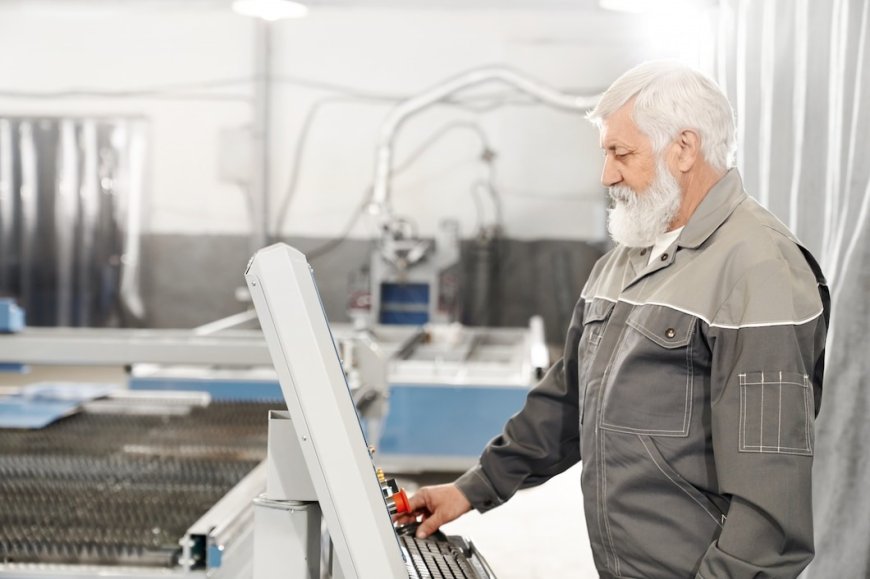What To Look For When Comparing Conveyor Belt Manufacturers And Equipment Options

Buying a conveyor isnt something you do every day. Its a big decision that affects productivity, layout, safety, and even long-term maintenance costs. Choosing the right supplier can save a lot of time and money for businesses in sectors like food packaging, distribution, automotive, or vertical farming.
Thats why comparing conveyor belt manufacturers before purchasing is worth the effort. Not all equipment is built the same, and not all vendors understand your operation the same way. Here's how to make the right call when browsing for a conveyor for sale.
Start With Your Process, Not the Product
Before looking at suppliers or systems, start by breaking down how materials move through your space. Think about:
- The size and weight of the items being moved
- The number of transfer points
- Floor space available
- Required speed and flow
- Environmental conditions like moisture, dust, or temperature
Many buyers make mistakes at this step. They pick a system first and then try to customize it to fit their operation. This usually leads to custom fixes, downtime, or wasted investment.
For example, a bakery might need a washdown-rated belt conveyor that can handle crumbs and spills, or a car parts facility might require a rugged roller-based system that can carry engine components weighing hundreds of pounds.
Once you map out your real-world needs, filtering out options wont work is easier.
Not All Conveyor Belt Manufacturers Are Equal
Some manufacturers specialize in light-duty systems or focus on modular or heavy-duty solutions. Others offer only off-the-shelf equipment or build to spec.
Heres what to ask when reviewing conveyor belt manufacturers:
- Do they provide systems for your specific industry?
A company that understands vertical farming has different insights than one that mainly builds for packaging lines.
- What materials and parts do they use?
Look for details on rollers, frames, motors, and belting. Can they handle the environment your system will live in?
- Is there support after installation?
Do they offer maintenance kits, repair parts, or customer service when things go wrong?
- Can they show examples or case studies?
You want proof that theyve done this before. This can be photographs, data, or project references.
These questions help separate general equipment sellers from specialists who know what your operation demands.
How To Evaluate A Conveyor For Sale
When you find a conveyor for sale, dont just look at the price. Think about what the system offers and what it might cost down the line if it breaks, jams, or doesnt scale with your operation.
Check for these things:
- Modularity: Can the system be extended, shortened, or reconfigured as your business grows?
- Ease of maintenance: Are parts like belts or rollers easy to replace? Can your in-house team handle it?
- Footprint and layout: Will it fit into your space without major renovation?
- Power and control: Does it offer automation or sensors that can help with flow control?
For instance, a growing e-commerce operation might want a belt conveyor integrating barcode scanning and zone-based start/stop controls. On the other hand, a facility that ships large, heavy goods might prefer a chain-driven roller system built to handle tough loads.
Dont Skip The Details: Materials And Build Quality
Ask for specifics. A general statement like high-quality steel frame doesnt say much. Ask about:
- Gauge and coating of the frame
- Bearing types used in rollers
- Motor specifications
- Belt material (PVC, rubber, urethane?)
Even the best design can underperform if built with cheap parts. Quality manufacturers will list these details clearly and explain why they chose those materials.
Consider Lead Time And Installation
Dont wait until the last minute if your operation needs equipment fast. Ask vendors about:
- Estimated build time
- Delivery time
- Installation process and support
- What youll need to prep on your end (e.g., electrical, mounting points)
Some vendors offer plug-and-play systems that arrive ready to run, while others require full integration into your existing control panels or floor plan.
Final Thoughts
Choosing the right conveyor system isnt just about finding a good deal; its also about finding a system that works for your materials, fits your floor plan, holds up over time, and comes from a supplier who understands your work. The best manufacturers of conveyor belts do more than sell equipment. They help you solve real problems like flow bottlenecks, space constraints, and labor shortages by offering systems that do exactly what your operation demands.








































